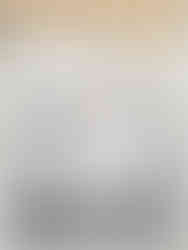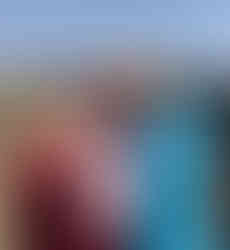Vital Signs
- Prof. Helen Storey
- Dec 9, 2020
- 4 min read

These are both precious and dangerous times to commit anything to writing; still a time for feeling over pronouncements?
Most often academics are expected to report from a place of authority, certainty even, from something well studied, with evidence to back it up and examples of others who have led us to here too - Yet here we are; still in the middle of something we are yet able to fully reflect upon - a vaccine on its way, yet somehow still living from one emergency to the next.
To some degree, everyone has been experiencing an aspect of themselves anew, some within relative comfort, others, at the extremes of the human condition – the person we know best, looks out from a mind we experience as ourselves, not sure of what’s coming next, or how we will deal with it.
Here, those in good health, continue to try to pace themselves, design our routines, within the limits of what we are allowed and not allowed to do. We move from the domestic to the desk, online meeting to online meeting, the kettle to the radio, and at the end of a seemingly timeless day, run for some hills, if we still can.
For the past 5 years I have worked between LCF and Jordan, more precisely, with those that live in Zaatari Refugee Camp, a place of 80,000 Syrian people. People, who, as I write this, are also in lock down, but within a much longer one of 10 years.
A lockdown within a lockdown.
This has been a decade of displacement, a decade away from home – 10 years of life, not ‘returning to normal’.
Working within each other’s physical company has come to an end for now and with it the ability for all the seemingly magical stuff to play its part; the conditions from where deep trust evolves, the power of presence, the felt smile and the collision and hum of all that can happen when something is imagined, solved, shaped, and created together in person.
For now, we are still working at distance, with our colleagues at Sheffield University and an equal number of colleagues on the ground in Jordan. Since mid-August, 30 people are now in action on our project, The People’s PPE – dealing with a crisis by building livelihoods. We are endeavouring as much to find out how we can work together under these current conditions, as what it is we are all seeking to deliver.
Over and above my role as a designer, my contribution to the project has become one of seeing the connections between all the different areas, adding first-hand experience into the mix, for those who have never been to Zaatari and trying to see all our moves, as much as possible, through the eyes of the other. Professional dynamics are being up turned. Those on the ground in Jordan must take the lead, they will be the ones that live and deliver what the project collectively instigates, this means that those who might naturally lead in the UK, need to take a step back, whilst still bringing all that their experience and knowledge can contribute.
Working with the humanitarian field at this time, despite some experience, feels like starting again, the landscape COVID has delivered has changed everything.
Whilst those that live in Zaatari and the urban area that surrounds it, remain at the centre of our work, we are feeling more, but able to do less.
Recognisable progress is at the mercy, not just of the pandemic, but of having to sense which emergency to respond to right now. Whose emergency? I have never been more aware of multiple kinds of truth co existing; of what it means to be an NGO worker now, a refugee now, a host country now, a local university now, an industry leader now, a research funder now, an informed outsider, now. Whose truth takes precedent, or gets acted upon? What price is paid, when some truths can’t be openly spoken of at all?
Whilst in many ways we are working harder than ever, we do so as if avatars of our previous selves, even those whose souls we know well are rendered 2D. It is as if working in this screen dominant way has put a stop to meaningful new memories being made.
Memory making is physical, involves our whole being - it’s what ties great love to great loss.
For at the basis of thinking is surely bodily sensation – of the self and the other, in relationship; so I wonder what might be the longer- term ramifications for new memories not being laid down between us?
I wonder too, if even the use of imagination itself is being affected in these times – for me, always triggered by a strong sense of another, this has forever been my historic place of certainty to depart from.
Connection and new memory making are not the same thing and working behind our screens, poleaxed between the urgency and hardship in camp and the only relating possible, through plasma; our imaginations are now being re directed into a dance of surrender to how we have previously worked and deployed instead, towards a constantly reinvented response to a once removed and unpredictable reality.
At the other side of our isolation, our time of enforced separation, lies the force of a drawn arrow finally released – On this day of ‘Human Rights’ my commitment and devotion to Zaatari is louder than ever, the distance between us, something of an agony, as what is felt, what can be shared and what can be bettered is for now, an act of faith.







Comments